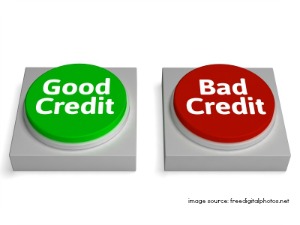Your Credit Score from CIBIL is a primary factor now to avail any kind of loan. With more and more institutions opting for a check on your credit history, keeping a good credit score has become the need of the hour. For someone whose credit report has yet to carry any credit information this might be easy as one has to just follow few basics and understand the difference between good or bad loans. But what should you do if you already carry a bad credit score. Even there anything below 600 will be a score which will give you sleepless night. Although there are handful of companies which promise you to improve your score, they charge you quite handsome money and does not do anything unique then what you can do yourself
Here are 7 ways through which you can ensure your bad score changes to good in a meaningful time period and you reach the stage of managing your money with a discipline:
- Analyze Your Report: There can be various reason for your bad score and unless you have a clue, you cannot take corrective measures. So the first step should be to get your credit report in hand and see where the real problem has been. Is it the default on repayment of a loan or Did you have too many loans in your basket or do you went for a high credit initially. A detailed check on your credit report will give you the crux of the problem for your bad credit score and will give you a direction in which you should proceeds towards rectifying your mistakes.
- Stop Using Credit: If a timely repayment of your credit cards has been a major issue then it shows that you are not very well equipped with using credit or it may have been beyond your means but you still availed. A good reason to stop using credit and make a shift to a debit card. Using your debit cards will ensure you do not commit any mistakes further and you use your money well within your means. This will save you from adding any negative marks further in your credit history as it takes time to bring a change in your personal behavior when you are already inclined to living a life on credit.
- Repay Your Outstandings: The biggest impact on a credit score is when you have good amount of outstanding on your credit cards or loans. So if you see any of these in your credit report, your first step should be to repay these loans and reduce the burden. But here you need to be careful as you might be called for a settlement rather than complete repayment. A settled outstanding still reflects in your credit history for next seven years whereas a loan completely repaid will make an impact more positively. However, it is easier than said as repaying a very high outstanding may not be within you means. If you don’t have any recourse but to settle then maximize your payment than what you are asked for.
- Continue the Good Loan: A credit report reflects your last 36 months repayment history. To improve your credit score the institution need to know your credit repayments during such period. Even if you have few bad loans, a good loan like housing or education can severely increase chances of improvement in your credit score. So on one side you should look for settling most of your high paying loans while on other side continue repaying your housing loan, if any, which will help you in enhancing your score. Even if you are running an education loan with say two years remaining, good to repay it with installment without any default so that your good repayment track record can be noticed.
- Automate Repayments: When you have not been in a discipline remembering all your repayment can be a tedious task and there is a high probability that you may default in one of them. At times even if you remember, any urgency can force you to delay. To ensure you do not default on your payments in future, automate all of them. Sign up for an auto debit from your bank accounts instead of you remembering for cutting a check on the last date. This will ensure you do not default on your repayment even if you don’t remember it.
- Recheck Frequently: Sometimes there are discrepancies in the credit report and many a times credit institutions failed to update CIBIL on a timely manner. Even if reported, it may take time to reflect on your credit report. With all such instances it is necessary that you keep checking your credit report at a frequent period to see if your repayments are updated. If there are any discrepancies you should raise a dispute with CIBIL and get it rectified so that it can reflect in your credit score.
- Manage Your Spending: Once you have taken necessary actions for improving your credit score, you should start managing your expenses for the future. Start following a budget so that you can track where your money is going. This will bring a discipline in yourself and you will come to know why exactly you failed previously. A change in your spending behavior at this stage will bring a great amount of discipline in your life and career which will ensure you manage your finances with great care in the near future.
A credit score is a reflection of your behavior towards managing your credits. You might have made mistakes in the past for whatever reason, a corrective measure taken at right time can still lead you to a healthy financial life. If you are being hit by a bad score, start taking action today.
Have you checked your’s Credit Score?
Share your story…..
Leave a Reply